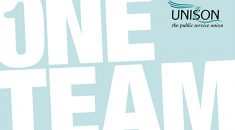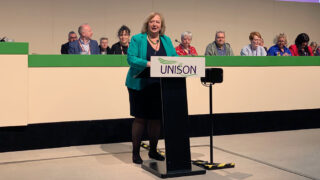Being able to feed their families, afford dental treatment, repair their cars or pay off debts are some of the things that health workers could afford if the government gave them a decent pay rise, according to a survey released today (Sunday) by UNISON.
UNISON says the findings expose the financial hardship suffered by NHS staff as a result of the government imposing limits on their pay. They form part of the union’s evidence to the NHS pay review body, which is due in tomorrow (Monday).
Since the 1% pay cap was imposed seven years ago, NHS employees have seen their pay lose value as the gap between wage increases and the rising cost of living has grown.
This fall in income has had a significant impact on the service and the workforce, as overworked staff leave for higher paid jobs elsewhere and NHS trusts struggle to attract new recruits.
The survey – of 12,000 NHS employees working as cleaners, nurses, paramedics, midwives, receptionists, security, catering and other health staff – shows that more than three-quarters of respondents (78%) said a pay rise would boost staff morale and ease their financial worries (71%).
Health employees who completed the UNISON survey said a pay rise would enable them support their children at university, buy healthier food, and shop without having to put back items when they get to the checkout:
- “It would mean I could get to the end of the month without being overdrawn. And that I could do a food shop and not have to put items back at the checkout because it’s too expensive.”
- “It would mean I wouldn’t need to ration food.”
- “It would be nice to get to the checkout at the supermarket halfway through the month without panicking that my card will be refused.”
- “It would mean I could afford to send my son on school trips.”
One in five (21%) said they do additional paid work on top of their NHS job to make ends meet. Of those that do this, more than half (56%) do extra shifts (known as bank work), and more than a third (36%) have another job outside the NHS. Unsurprisingly, almost three-quarters (73%) of those doing extra work said their basic salary did not cover all their living costs.
More one in three respondents (37%) have been so strapped for cash that they’ve had no choice but to turn to friends and family for financial support in the last 12 months. One in ten (10%) have pawned possessions.
More than three-quarters (79%) revealed they feel worse off now compared to a year ago. Almost all (95%) have noticed a rise in food prices, (92%) said their energy and water bills had increased, and 89% had seen a rise in transport costs.
As a result, more than three-quarters (78%) said they could no longer afford to save money each month. Another three-quarters (74%) have cut back on meals out, 71% on clothes and shoes, and two-thirds (66%) on family holidays.
More than four in five (84%) have considered leaving the NHS in the last year. Of these, more than three-quarters said it was because they felt undervalued (78%), and 73% because of the increase in workload. Of those that would consider leaving, almost half (45%) said their preferred option would be take up a role outside the NHS.
UNISON head of health Sara Gorton said: “It is obvious that a pay rise would boost staff morale. The increase in workload, cuts to services, staff shortages and low pay have all contributed to making the NHS a difficult and pressurised place to work.
“Awarding health employees a decent pay rise would not only give staff the recognition they deserve, it would also allow the NHS to hold on to its experienced and dedicated workforce.
“Health workers are far from greedy but the expectations placed on them keep on rising while their pay has been stagnating. It’s hardly surprising that an increasing number are leaving the NHS for better paid jobs elsewhere.
“This survey is NHS staff saying in their own words how much a decent pay rise would mean to them. We are calling on the government to listen to health workers and pay them fairly.”
Health unions are calling for a pay rise that is at least in line with inflation and a one-off payment of £800 to make up for the loss of pay over the past few years.
Notes to editors
The survey results are here. The survey was open from September to December 2017 and there were 12,108 respondents. Case studies are available on request.
UNISON media contacts:
Liz Chinchen T: 020 7121 5463 M: 07778 158175 E: l.chinchen@unison.co.uk
Clare Santry T: 0207 121 5546 M: 07944 191479 E: press@unison.co.uk
Siobhan Cooley T: 020 121 5555 M: 07903 870786 E: s.cooley@unison.co.uk






